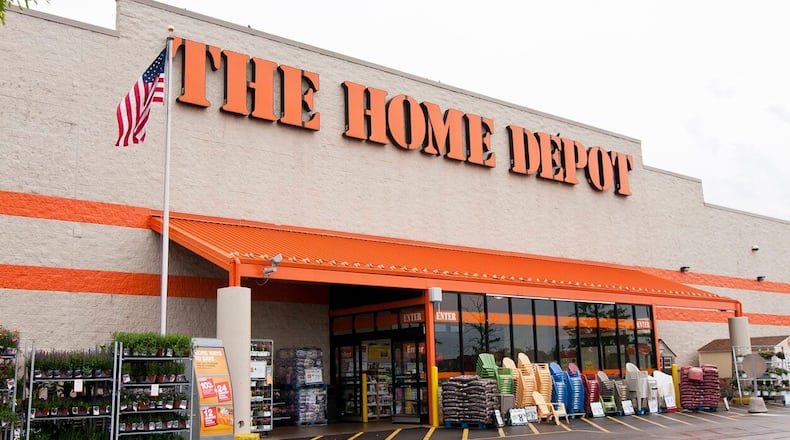Home Depot, the world’s largest home improvement retailer, has released a study showing that its $157 billion-a-year business “supports” 2.2 million jobs, including 129,400 in Georgia.
To provide details on Home Depot’s economic presence, the Vinings-based giant partnered with global consulting company PwC, concluding that spending by the company and its customers, in addition to tax payments, is a significant presence in the American economy.
The study was done to provide context for the company’s operations and plans, said Sara Gorman, a Home Depot spokeswoman.
“As you know, we operate 2,334 stores nationwide and plan to open 80 more in the next five years,” she said. “It’s important to understand and communicate our impact on the communities where we operate.”
The company has about 470,000 employees, including more than 33,500 in Georgia.
PwC found that for every one job at the company, more than four additional jobs are supported across the U.S. economy, which is more than twice the average for retail businesses, the firm said.
“I guess another way to look at it is if there was no ‘The Home Depot’ in Georgia, just in 2022 the state would miss out directly on 33,500 jobs, 92,200 projects (by professional contractors), 140 facilities, 90 stores, 550-plus local suppliers and 116,000 volunteer hours,” Gorman said.
Not exactly, said economist J.C. Bradbury of Kennesaw State University, an expert in the ways that consumer spending adds — or doesn’t add — to a local economy.
Economic value is not the same as economic impact, he said.
That is, a retailer provides value, but it generally doesn’t create the demand for its products and services. While the company is huge and hugely popular, it is a conduit for economic activity, not the source.
Without Home Depot, the spending and jobs wouldn’t disappear, but they would be distributed differently.
“People go to Home Depot because it’s a very useful store,” Bradbury said. “But if Home Depot isn’t there, Lowe’s is there, Ace is there, ‘Fred’s Corner Hardware’ is there.”
The company sometimes asks for tax breaks and other incentives when it wants to open a store in an area and touting its economic impact does make for a stronger case, he said.
Still, the study does spotlight Home Depot’s success as an efficient and helpful way to satisfy demand, Bradbury said. “I shop there a lot. I prefer it to the other stores, so there’s some added value, but what we are talking about is economic footprint.”
And that footprint is large, as is the force of its business.
— Home Depot stores, warehouses and offices occupy about 300 million square feet of building space — equivalent to 5,200 football fields, the company said.
— The company directly contributed more than $22 billion to government last year, including taxes paid by the company, taxes collected on its sales and taxes paid by employees in income taxes. Home Depot paid about 1% of all corporate income taxes collected by the federal government, PwC said.
— The company’s nonprofit foundation has trained more than 41,000 people in the skilled trades, the study said.
— By revenues, Home Depot is the largest company based in Georgia, although Sandy Springs-based UPS has more employees.
About the Author
Keep Reading
The Latest
Featured



